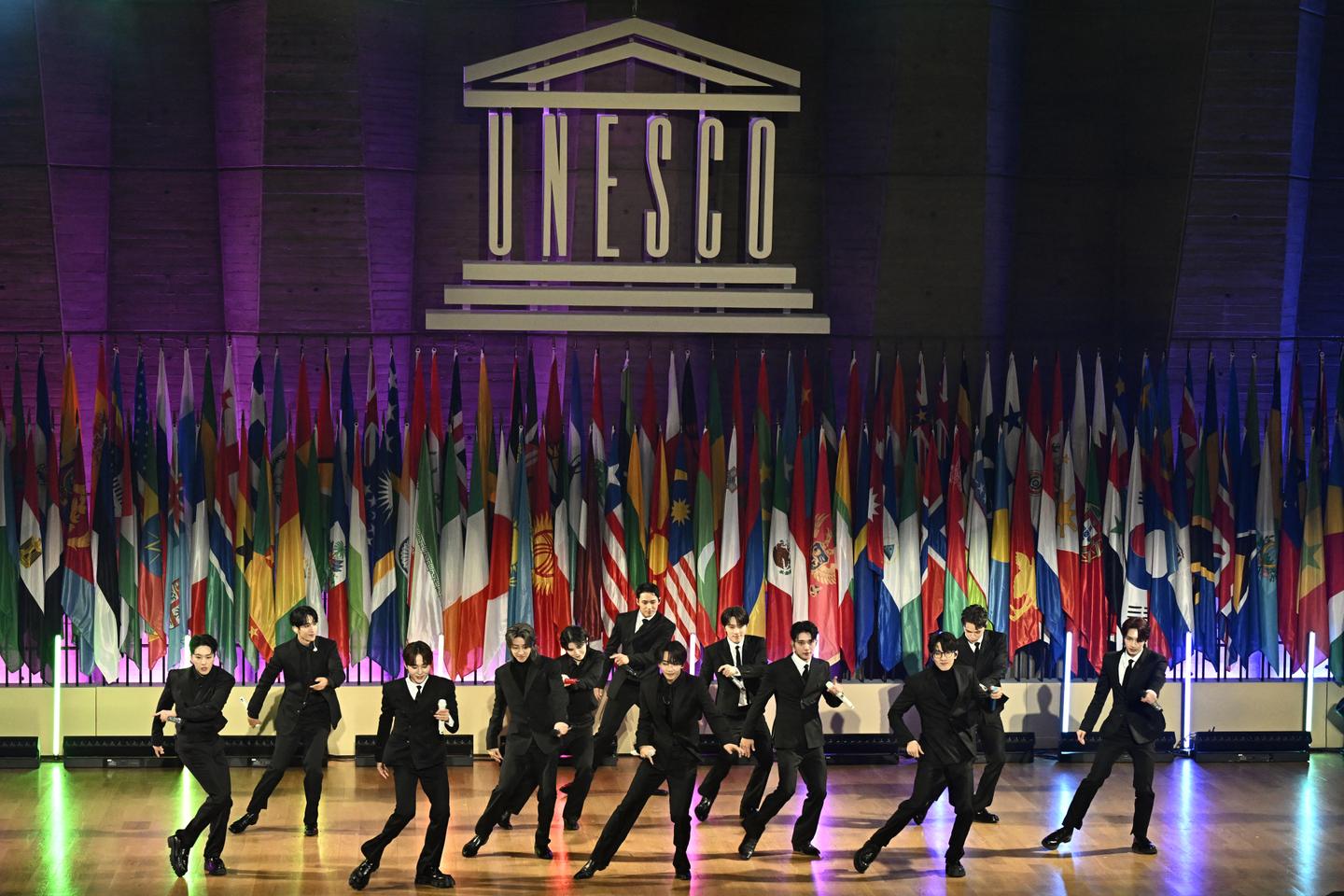


Teachers of international relations are clear: When it comes to soft power, South Korea is the model to follow. In less than two generations, hallyu (the "Korean wave") has conquered the planet. Films, TV series, music, food, beauty... In all these fields and every type of media, the South Korean factory of cool fascinates by conveying an inclusive art of living.
On the music scene, K-pop groups from BTS to Blackpink fill stadiums around the world. The boy band BTS alone has over 70 million followers on Spotify, and it was this group that the United Nations called upon to address the younger generation on environmental issues and during the Covid-19 pandemic in 2021. South Korean film, TV series and K-dramas are not to be outdone. Bong Joon-ho's film Parasite swept four Oscars and a Palme d'Or, and the dystopian series Squid Game was the most viewed in Netflix history.
Another global breakthrough: cuisine, driven by kimchi. The spicy national dish, made from fermented vegetables, has settled in on our plates. Just like the masks, ointments and liquid creams from the cosmetics company Amorepacific, which have invaded shelves all over the world.
Influx of tourists
In La Corée du Sud en 100 questions. La tyrannie de l'excellence ("South Korea in 100 Questions: The Tyranny of Excellence," Tallandier, 2024), Juliette Morillot, a specialist on the two Koreas, explains that with hallyu, the Land of the Morning Calm has taken its revenge on its traumatic history, marked in the 20th century by Japanese colonization, partition with the North, war and dictatorship. It was in the late 1990s, after a period of cultural isolationism, that the spread of South Korean popular culture took off. "The government then became aware of its economic potential by creating an institutional architecture, releasing massive investment programs and relying on its national champions, the chaebols [industrial conglomerates], to export it," said Vincent Grégoire, director at the creative industries consulting agency NellyRodi.
A lever for cultural diplomacy and nation-building, hallyu has also boosted the balance of trade and economic growth in the world's 14th-largest economy. In 2021, Seoul was exporting more than $7 billion worth of cultural products, and since 2017, K-pop has occupied sixth place in the global music market. The Korean cultural wave is also driving the influx of tourists. Between 1995 and 2019, their number quadrupled, and the sector accounted for almost 2% of South Korea's gross domestic product in 2023.
